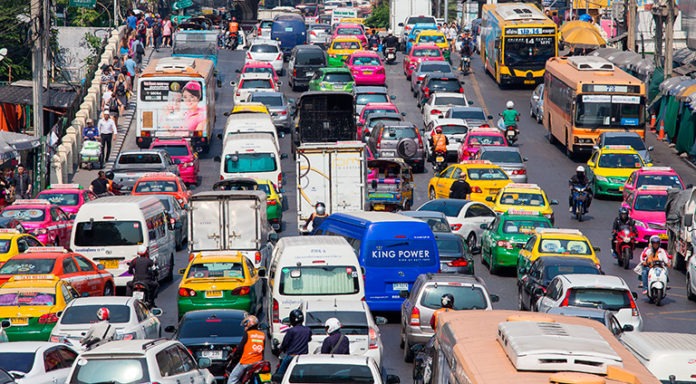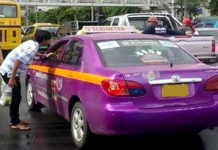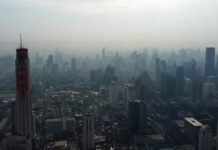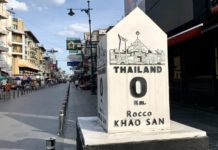Thai authorities are considering imposing a congestion charge in the capital Bangkok to ease traffic snarls and air pollution, making it potentially the second major Asian city to implement such a policy.
A five-year joint study by Thai transport authorities and German development agency Deutsche Gesellschaft für Internationale Zusammenarbeit looked at the feasibility of congestion pricing in Bangkok, and is looking at possibly charging fees ranging from 50 baht ($1.30) to 120 baht across different city zones.
The Thai capital ranked 11th on a global congestion index in 2019 by navigation-device maker TomTom NV. According to the report, people in the city of 10 million lost eight days and 14 hours to rush hour traffic that year.
Bangkok rapidly fell in the congestion index during the pandemic as lockdowns kept people at home, but residents are now complaining that traffic in the city is returning to pre-Covid levels.
The study analyzed the impact of the different implementation scenarios on factors including gross revenue, carbon dioxide emission and financial burden on lower-income households, according to an executive summary.
“If the congestion charge is implemented, it can help to decrease congestion and air pollution,” said Punya Chupanit, director-general at Thailand’s Office of Transport and Traffic Policy and Planning, in a statement on Monday. The study also showed that people could travel more quickly and more people would use public transport options, he added.
Bangkok’s public transit includes buses and a network of subways, sky trains and commuter railways. But limited infrastructure for rapid mass transit means limited access for the majority of people who live outside of the city’s central areas, many of whom rely on private vehicles.
The capital also suffers from severe air pollution, with readings hovering at unhealthy levels for weeks at a time in recent years due to high use of private vehicles and agricultural burning in nearby provinces.
Punya said his agency will hold a public hearing on the congestion charge policy before proposing it to the transport ministry within this year, but he noted implementation may not happen soon, according to Thai newspaper Thansettakij.
Thailand has pledged to cut down on greenhouse gas emissions and is promoting the use of electric vehicles to achieve carbon neutrality by 2050 and net zero by 2065. It launched its first carbon credit exchange earlier this month.
Singapore, Stockholm and London are among the big cities that already collect congestion charges, while Oxford in the UK this year started levying charges on non-electric vehicles in its center.
Meanwhile, New York City’s Metropolitan Transportation Authority is considering rolling out a congestion pricing plan that would charge some motorists as much as $23 to enter Manhattan’s central business district, potentially making it the first US city to implement such a policy.










































